“This is not cold, lifeless, machine music. It draws the listener into a vast sound chamber where certain features remain constant, but others are restlessly shifting and squirming, like sea creatures. Brownout is, without doubt, Phoenecia’s magnum opus, the place where the ideas found in the preceding records are allowed to come to full fruition.” ~Tim Haslett from Other Music/Boston (RIP)
The times before darkness
You might want to grab a sandwich and a soda because this is a bit of a long read. But worth it I think:
Gather ‘round the fire children and I will tell you of the times before darkness when two men took a different path and changed everything.
Mid 2001 was a weird and wonderful time in America. Bush was selected as president, the dot-com bubble burst and all the fancy offices with their Foosball tables, open plans and in-house chefs blew off into memories like tumbleweeds born on the winds of change. Personally, it was a weird time as well. With the dot-com fail all those sick web design jobs I was promised blew away with billions in VC money.
Back then I lived in Somerville outside of Boston. When people ask me what the best years of my life were I’d have to say it was Spring and Summer of 2001. It was pre 9/11, America was still asleep if not naive and unaware of what was being planned or what was to come from it (remember this date for later).
One of my favorite things to do was go down to Harvard Square where Other Music opened a second store (for those of you who do not know, Other Music was kind of like a smaller East Coast Amoeba. DJ Spooky worked in the NYC store where I happened to have unwittingly talked smack about his music to his face not knowing what he looked like. Anyway…). All the heads like myself went there regularly—as well as the venerable Village Idiot—to check out the latest releases. The staff were all knowledgeable and as slick a bunch of salesmen as you can get a bunch of music nerds to be. Despite the bum economy, I had some spare cash. I shudder to think how much money I spent at Other Music. I’d easily drop $50 per visit but more like $80 – $150 regularly.
And the guy who seemed to love to take my money in exchange for music was the late Tim Haslett (RIP). I mention Tim in light of Phoenecia’s Brownout album recently showing up on Schematic’s Bandcamp page. Being a religious reader of The Wire I read about its release but wasn’t sure about getting it. For one thing—at that time I held a few strict musical beliefs. Among them were that electronic music coming out of the States was inferior to anything from the UK or Berlin. Another was that Autechre were gods who could do no wrong. I bought everything of theirs I could find (still do), listened to it all constantly (still do), analyzed it and talked about it with friends as much as I could (guess what? Yup. Still do). I joked that they could release an album of sampled farts and sandpaper scraped against cement and it would be good.
As I mentioned previously it was an amazing time for electronic music. Most ears were turned East towards the UK, Europe and beyond. And as usual it took some folks from abroad telling us what they were listening to and realize there was some amazing stuff happening in the USA. Not in the expected big music cities like New York, Detroit, Chicago or LA but in… Miami, Florida!
Lily of The Valley, Florida, and Phoenecia
Schematic’s Lily of The Valley compilation introduced artists from near and far to a wider audience. Perhaps the most interesting ones were those from the south, especially Phoenecia. As the late great Tim Haslett himself said in his review of Brownout on the Forced Exposure website (which is quoted on the album’s Bandcamp page):
“It’s a long-held belief that all music emanating from Miami can, sooner or later, be reduced to a simple connection with early 2 Live Crew, MC Ade, Pretty Tony, Dynamix II, and other pioneering Bass artists.”
Miami had long been regarded only as a bastion of fast tempo bass music at that time (Outkast’s B.O.B. is the pinnacle of that style of music). But it had quietly been building up into a vibrant scene (VICE did a four part series of which Part 4 deals with Schematic directly: From that came these two guys who called themselves Phoenecia.
Josh Kay and Romulo Del Castillo had been doing some clever, funky electronic music under the name Soul Oddity before leaving Astralwerks, the major label they’d signed to, and forming Schematic Music Company. Their music up until this point was a potent blend of hip hop, electro, synth pop and techno. It was clearly a part of the Miami sound and scene.
Brownout—A footnote in history
Brownout came out and pretty much flummoxed everyone. It wasn’t another funky Phoenecia joint. It sounded more Dusseldorf and less Miami-Dade County. It was weird, new and different; like sliced bread, round wheels, electricity different. Brownout’s tempos rarely rise above 110BPM, there are no hooks nor riffs, the overall sound is nautical and sepulchral with a heaping dose of murky, dark and somber. It sounded more like it was made by someone in a darkened bunker in the north of England than, say, a couple guys from sunny, warm, bikini-clad Miami. It has heretofore unincorporated elements of dub in its DNA alongside faint reminders of the spin Phoenecia put on rhythms. Beats come and go away in a mesh of low bit depth sonic steel wool. Bass notes bump and drift int swathes of reverb and phased delay. “Eyebrow” is the album opener and it tells a tale of a strange land where the ground shifts and sways under digital debris and artifacts. “Diganesa” rocks as hard as the album gets with stony, thudding beats and shimmering metallic textures. “Jpace” is like demented alien lounge music you’d hear in a Vicodin-fueled dream. Sparing the reader a track by track analysis (it’s been done before and better by others) I must say this: it’s an album from a pair of time travelers predicting sounds that wouldn’t be heard for another five to ten years.
Sadly, Brownout suffered the fate of such masterpieces as Blade Runner or Spiritualized’s Ladies and Gentlemen We Are Floating In Space. Both were eclipsed by the success and clamor over another release (which were E.T. and Radiohead’s OK Computer respectively). With the passage of time each of those titles eventually earned their status as classics. It is my hope that the recent re-release of Brownout will elevate this album to a high level of recognition for the classic it is (it didn’t help that the news of September 11, 2001 months later reduced everything else to a footnote in history).
A Confield?
What was the blow to Brownout’s rise to classic status? Autechre’s Confield (Warp), released on April 30, 2001.
Now this you must know: before Confield, Autechre were almost universally loved for their melodic and rhythmic take on IDM. Their classics Incunabula, Amber and Tri Repetae (all on Warp, and re-issued recently) are permanently in people’s Top 100, Top 50, Top 20, Top 10 and Top 5 album lists—and is definitely in mine which should come as no surprise by now. To this day there are people clamoring for Autechre to descend from their digital Mt. Olympus and make the old music again.
Chiastic Slide, released in February of 1997 on Warp, stretched the limits of the fan’s ardor with its emphasis on noise, found sound, glitch and heavy digital processing (I can’t be the only person who looked up the word chiastic in the dictionary and was amused to find out it came from the same root as the word chasm; inferring a split or divide it presaged Autechre’s crossing over into a seemingly different realm of sound). LP5—reputedly made entirely on Nord Lead and Nord Modular synthesizers—was released in 1998 and had a little bit of melody but was a real head-scratcher. It had just enough of the Autechre sound to be recognizable. Grumbling comparisons to their previous work were a bit louder but not clamorous.
When we all heard Confield and the nascent blogosphere erupted with the sounds of thousands of nerds clamoring and screaming at once as if in pain. It’s still as divisive an album as Neil Young’s Trans, The Clash’s Combat Rock, Sonic Youth’s Goo, or Nirvana’s Nevermind. People didn’t just love or hate it—most people just didn’t get it. At the time, randomized or generative music was new to most (people claimed they were down when Eno did it but Eno had been light years ahead of everyone else for over three decades by then). So this strange album of seemingly random, clattering, tracks was so much of a stunner it didn’t just make people angry but made them confused—maybe the title was a play on the word confused? Whatever your opinion of it, one thing was certain: Confield was a major departure from previous works. Due to Autechre’s status and notoriety, the resulting uproar over it sadly pushed Brownout way into the background. Seventeen years later, go to Wikipedia where you will find an entire page for Confield alone whereas Brownout is only mentioned on the Schematic page. Which is a crying shame because, in my humble opinion, after close, analytical listening, studies and research Brownout is an Autechre album made by Phoenecia five to ten years too soon.
A richer, more fulfilling listen
It’s crazy and anathema, I know, but hear me out: Confield stands the test of time as an Autechre album marking a period of transition. Some have called it self-parody (I might say that LP5 or the later Untilted deserves that epithet). I’ve even grown to like it over the years after a lot of listens and broadened musical horizons. Yet it doesn’t really hint at what would come in terms of the electronic music of the early 21st century. There are glimpses but they are fleeting and weak. Brownout is a richer, more fulfilling listen.
For one, it incorporates elements Autechre wouldn’t arrive at until much later. The peripatetic, frenetic beats, the extensive warping and processing of sound, the long extended explorations of the minutiae of a samples “terroire” are what makes Phoenecia’s album so amazing. Brownout is music largely constructed by hand not parameters set by humans and followed by a MAX/MSP patch. Phoenecia took time to construct something so futuristic and different from what came before—not only in their catalog but in general—that it’s taken almost two decades to come back around and into the light as a remarkable, landmark album. It holds up all these years later and can be heard in the work of others and could stand on its own if released this year.
Pioneering work of electronic music
So, it’s a great time to go back, sit down and give it a listen somewhere you won’t be disturbed. I believe you will find elements you missed on previous listens. You will also hear things you wouldn’t hear musicians doing for another five to ten years (speaking as a musician I didn’t come close to anything like this level of detail until around five years ago and I’ve been making music for just about 35 years). Brownout, which like its title flickered a bit upon release, has now come full circle and deserves to be included when there are discussions about pioneering works of electronic music. And American music for certain.
Brownout is available on Schematic Music Company.






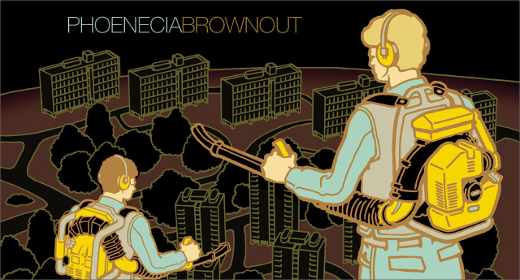



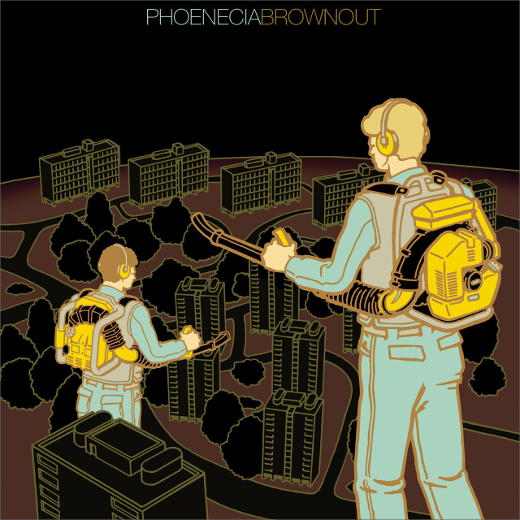



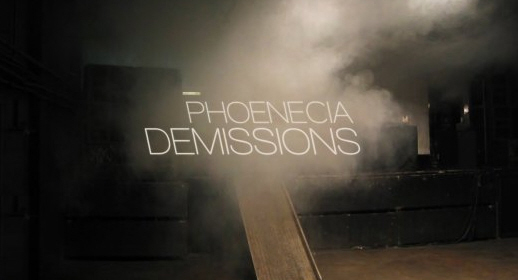
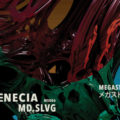
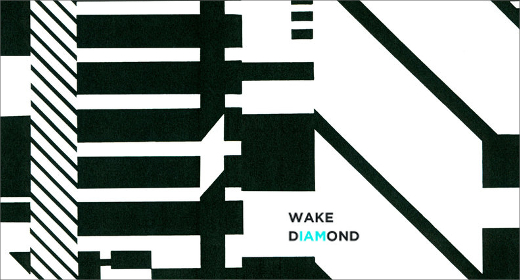



![Luke’s Anger :: Ceiling Walker EP (Love Love) — [concise]](https://igloomag.com/wp/wp-content/uploads/2025/04/lukes-anger-ceiling-walker-vinyl_feat-75x75.jpg)

![Ndorfik & madebyitself :: Solos EP (People Can Listen) — [concise]](https://igloomag.com/wp/wp-content/uploads/2025/04/ndorfik-madebyitself-solos_feat-75x75.jpg)





